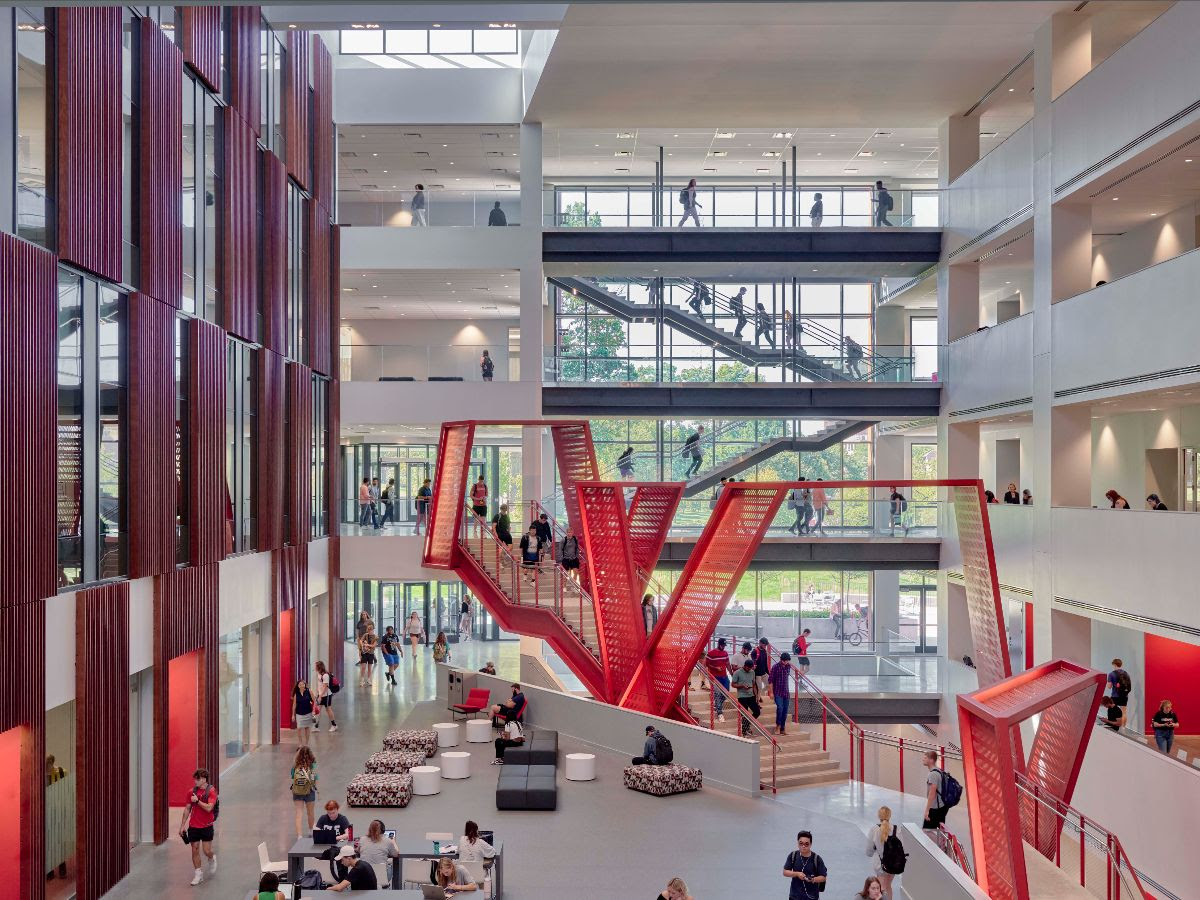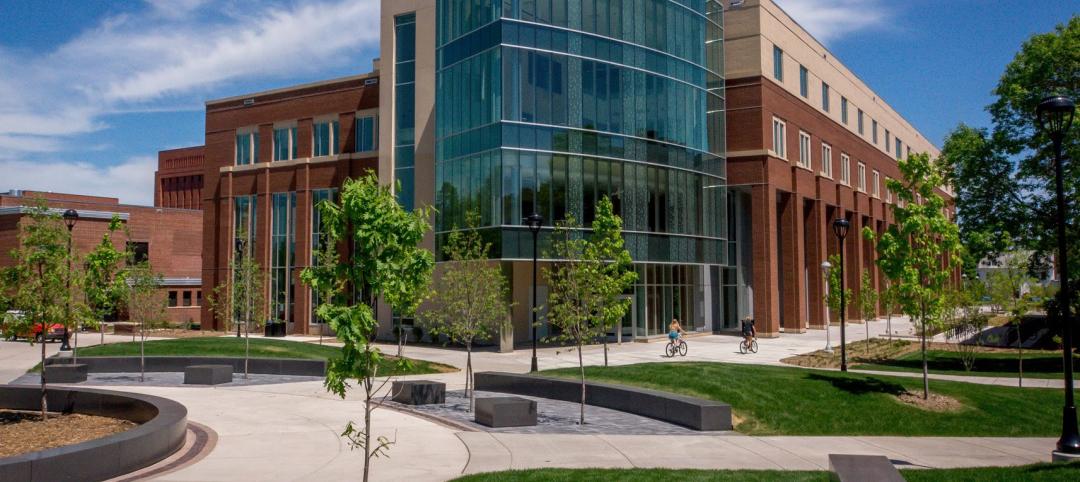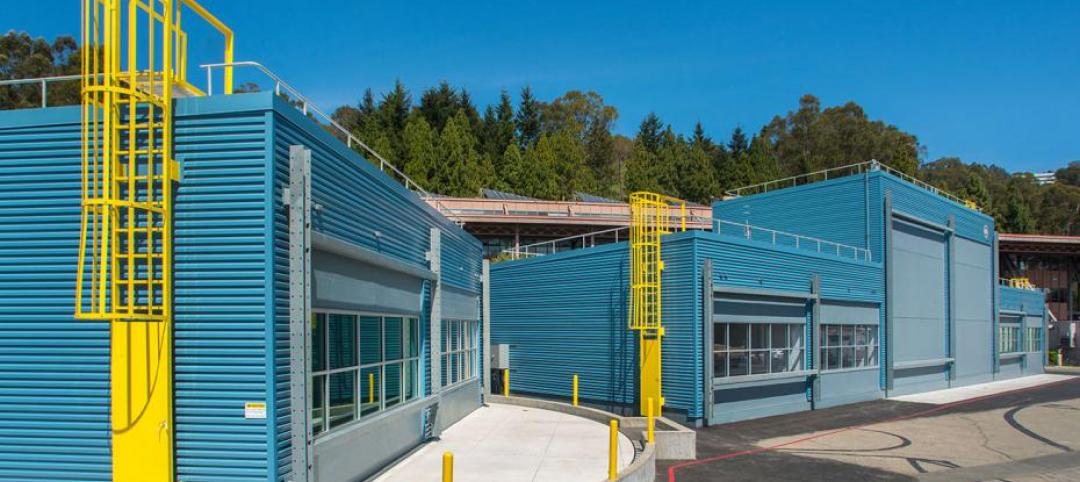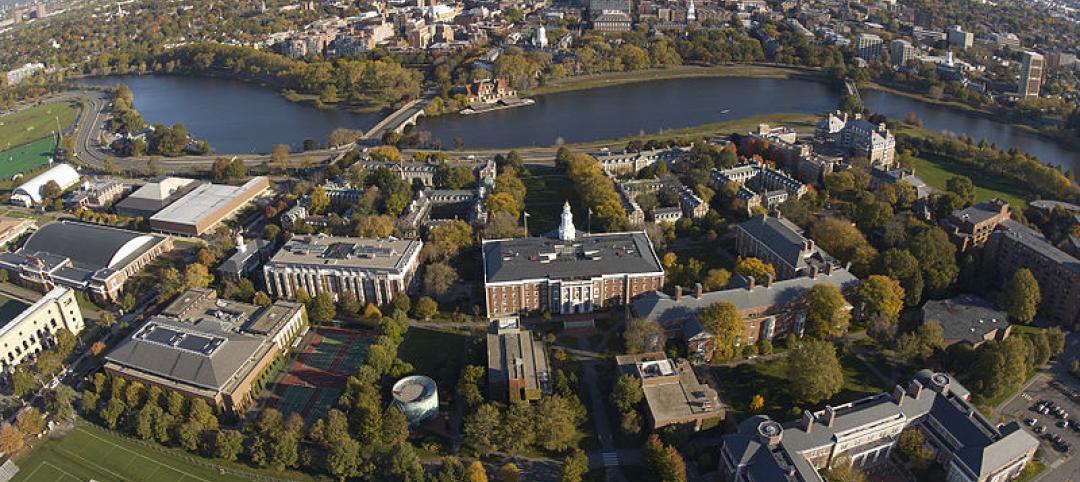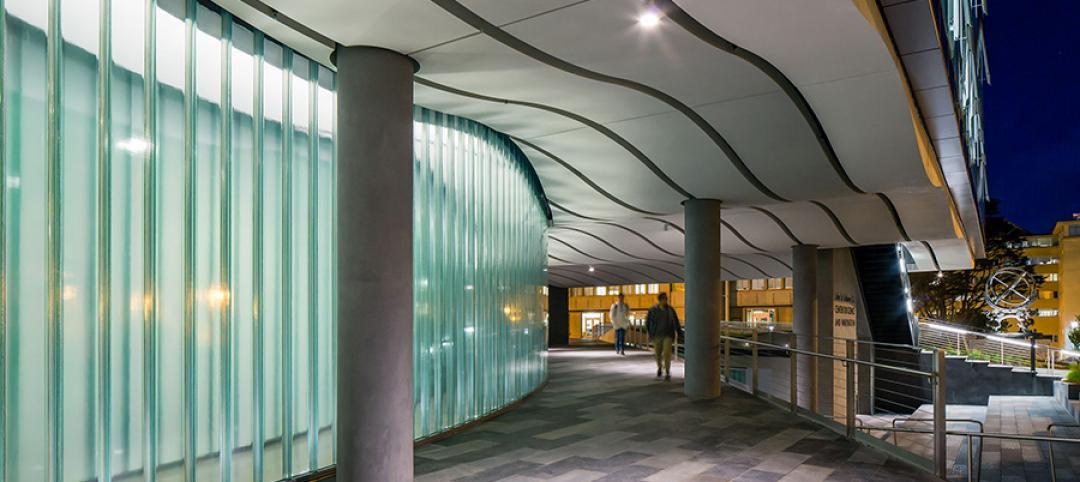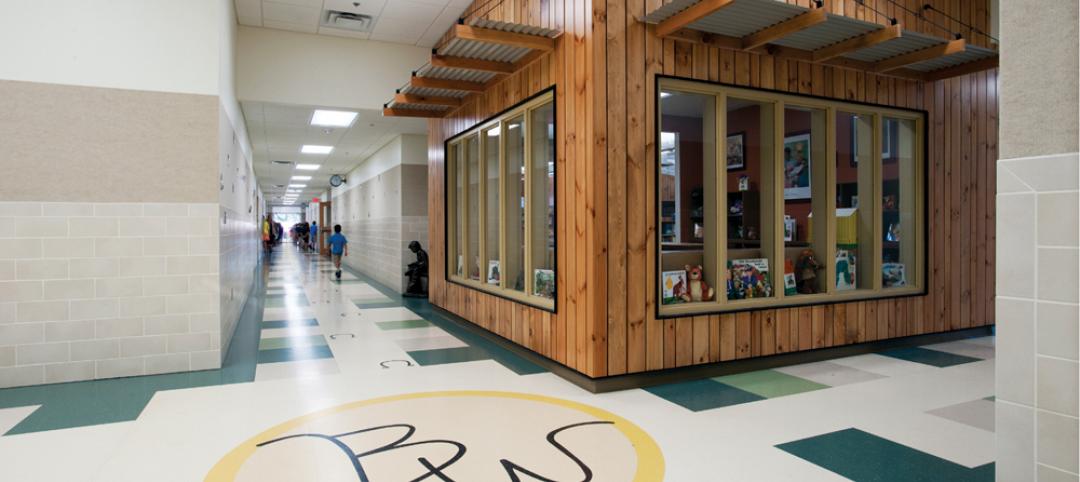The University of Cincinnati’s recently completed Clifton Court Hall unifies the school’s social science programs into a multidisciplinary research and education facility. The 185,400-sf structure is the university’s largest classroom building, serving its largest college, the College of Arts and Sciences.
Designed by LMN Architects in collaboration with KZF Design, the 185,400-sf, five-floor building unites academic units from various buildings across campus to create a new home for the College of Arts and Sciences. It brings together six departments, including faculty workspace, specialized lab spaces, administrative offices, classrooms, and a central social hub. The new building also acts as an arrival nexus that links the College to the campus core and the adjacent city neighborhood.
As a hub for student collaboration and learning, the building offers over 1,000 classroom seats in flexible flat-floor classrooms, seminar rooms, and a collaborative auditorium. The building also provides study, lab, and social spaces to support non-classroom learning. On the exterior, the terracotta-paneled façade complements the red brick of the prominent campus buildings.
Clifton Court Hall’s central, five-story atrium is infused with daylight from skylights and large north- and south-facing windows, which visually connect the building with the surrounding campus. The atrium serves as a hub for the College, fostering academic and social exchange in community and collaboration spaces and adjacent team rooms. A sculptural red stairway extends three stories diagonally through the atrium.
“The College of Arts & Sciences delivers curriculum to every student on the University of Cincinnati campus,” Susan Lowance, Principal, LMN Architects, said in a statement. “Every student will spend time here learning, researching, and engaging with the outside community, which makes it a building for the whole campus.”
On the Building Team:
Design architect: LMN Architects
Architect of record: KZF Design
Structural and civil engineer and MEP designer: Buro Happold
MEP engineer: IMEG Corp.
Landscape architect: MKSK
General contractor: Messer Construction
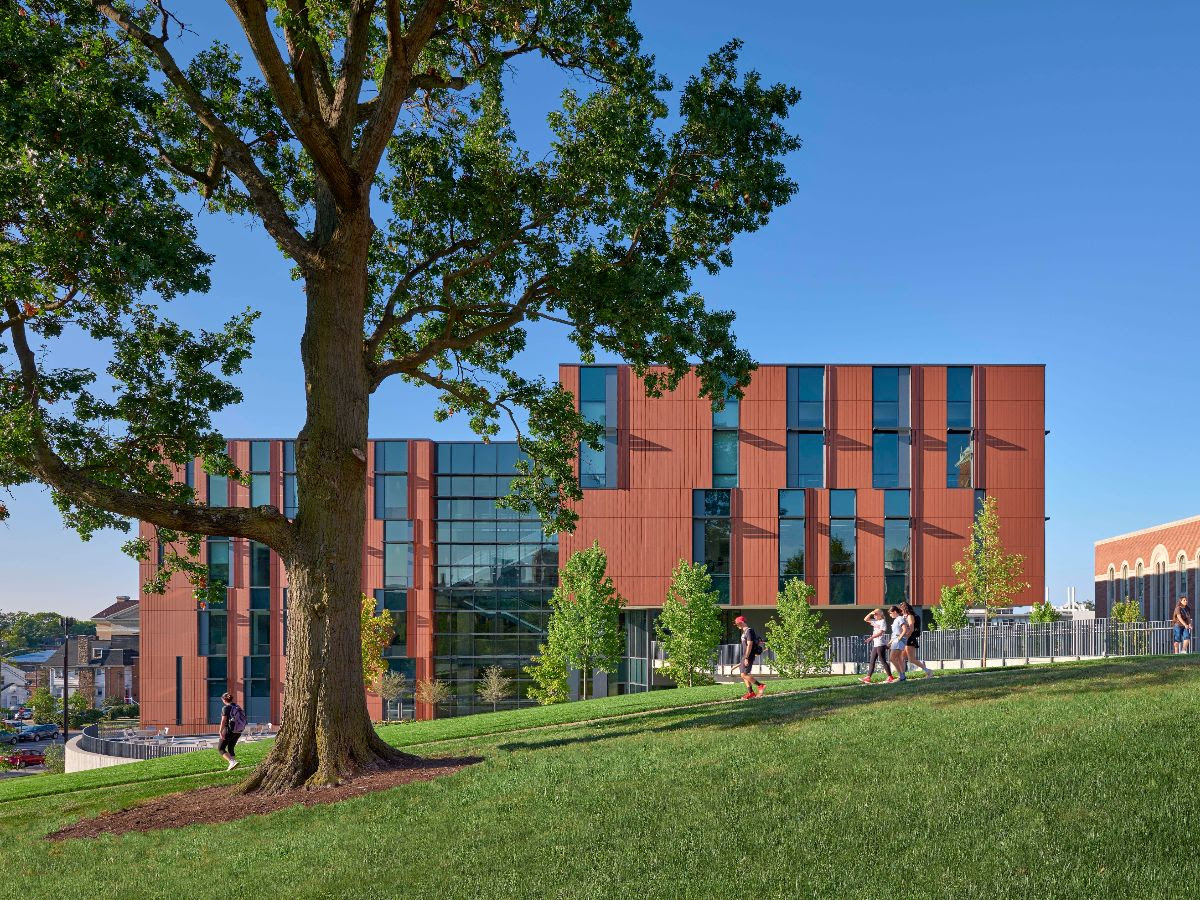
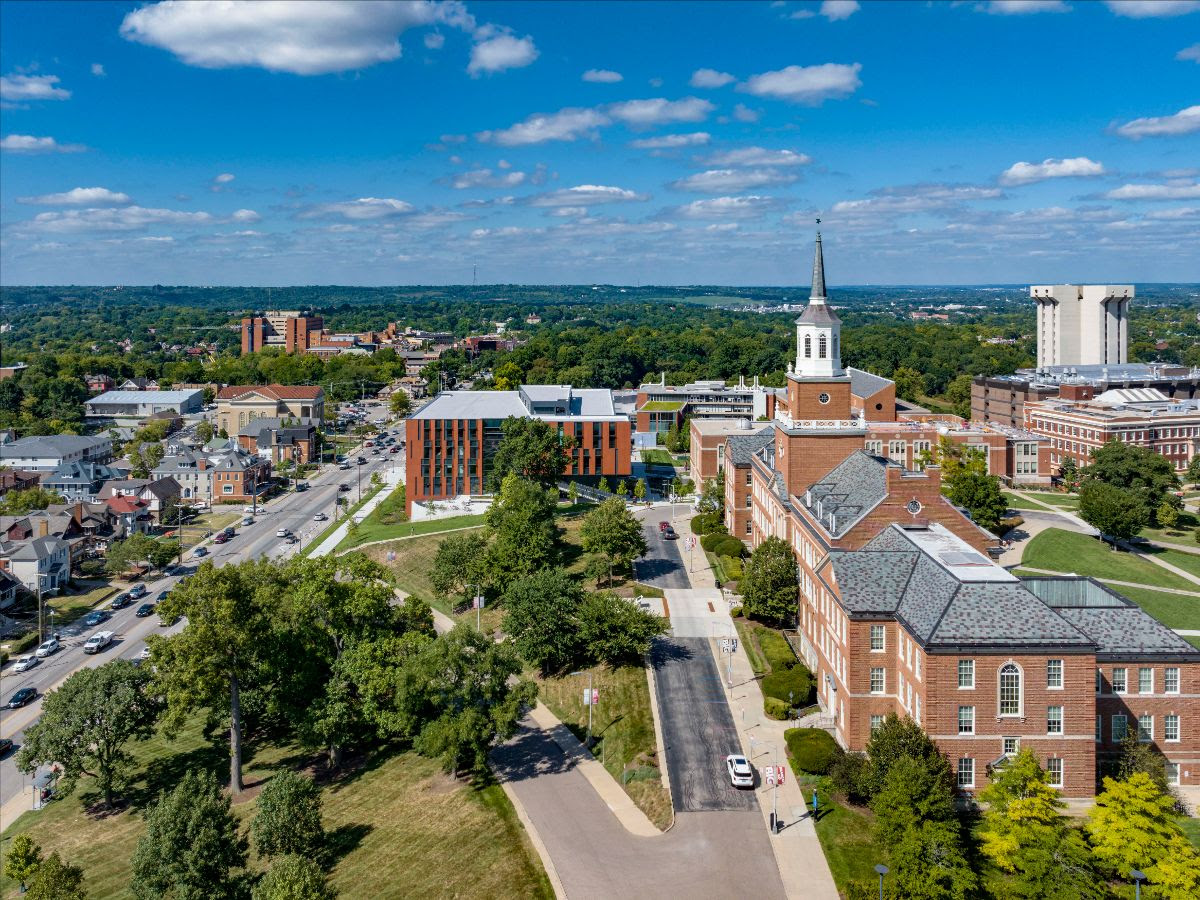
Related Stories
| Jul 18, 2014
2014 Giants 300 Report
Building Design+Construction magazine's annual ranking the nation's largest architecture, engineering, and construction firms in the U.S.
| Jul 11, 2014
$44.5 million Centennial Hall opens at University of Wisconsin-Eau Claire
Centennial Hall houses the College of Education and Human Sciences and consolidates teacher education. It is the first new academic building on the UW-Eau Claire campus in more than 30 years.
| Jul 10, 2014
Berkeley Lab opens 'world's most comprehensive building efficiency simulator'
DOE’s new FLEXLAB is a first-of-its-kind simulator that lets users test energy-efficient building systems individually or as an integrated system, under real-world conditions.
| Jul 9, 2014
Harvard Business School to build large-scale conference center
Expected to open in 2018, the facility will combine the elements of a large-scale conference center, a performance space, and an intimate community forum. The new building will be designed by Boston-based William Rawn and Associates.
| Jul 7, 2014
7 emerging design trends in brick buildings
From wild architectural shapes to unique color blends and pattern arrangements, these projects demonstrate the design possibilities of brick.
Sponsored | | Jul 7, 2014
Channel glass illuminates science at the University of San Francisco
The University of San Francisco’s new John Lo Schiavo Center for Science and Innovation brings science to the forefront of academic life. Its glossy, three-story exterior invites students into the facility, and then flows sleekly down into the hillside where below-grade laboratories and classrooms make efficient use of space on the landlocked campus.
| Jul 2, 2014
Emerging trends in commercial flooring
Rectangular tiles, digital graphic applications, the resurgence of terrazzo, and product transparency headline today’s commercial flooring trends.
| Jun 30, 2014
Research finds continued growth of design-build throughout United States
New research findings indicate that for the first time more than half of projects above $10 million are being completed through design-build project delivery.
| Jun 18, 2014
Arup uses 3D printing to fabricate one-of-a-kind structural steel components
The firm's research shows that 3D printing has the potential to reduce costs, cut waste, and slash the carbon footprint of the construction sector.
| Jun 16, 2014
6 U.S. cities at the forefront of innovation districts
A new Brookings Institution study records the emergence of “competitive places that are also cool spaces.”


